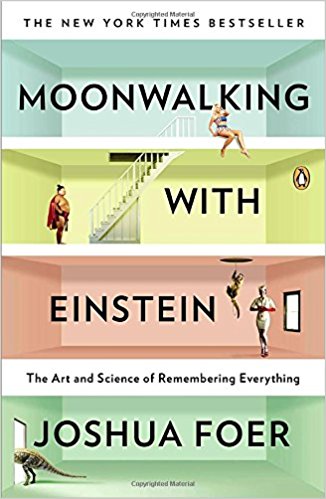“Why do I need to remember this when I can always look it up?” This is a common question among the younger generation, who often struggle to see the value of education in a world where all knowledge is quickly becoming digitized. In his book Moonwalking with Einstein, Joshua Foer partly answers this question by exploring the connection between memory and understanding.
“…even if facts don’t by themselves lead to understanding, you can’t have understanding without facts. And crucially, the more you know, the easier it is to know more. Memory is like a spiderweb that catches new information. The more it catches, the bigger it grows. And the bigger it grows, the more it catches.
…memory and intelligence do seem to go hand in hand, like a muscular frame and an athletic disposition. There’s a feedback loop between the two. The more tightly any new piece of information can be embedded into the web of information we already know, the more likely it is to be remembered. People who have more associations to hang their memories on are more likely to remember new things, which in turn means they will know more, and be able to learn more. The more we remember, the better we are at processing the world. And the better we are at processing the world, the more we can remember about it.”


 “…even if facts don’t by themselves lead to understanding, you can’t have understanding without facts. And crucially, the more you know, the easier it is to know more. Memory is like a spiderweb that catches new information. The more it catches, the bigger it grows. And the bigger it grows, the more it catches.
“…even if facts don’t by themselves lead to understanding, you can’t have understanding without facts. And crucially, the more you know, the easier it is to know more. Memory is like a spiderweb that catches new information. The more it catches, the bigger it grows. And the bigger it grows, the more it catches.